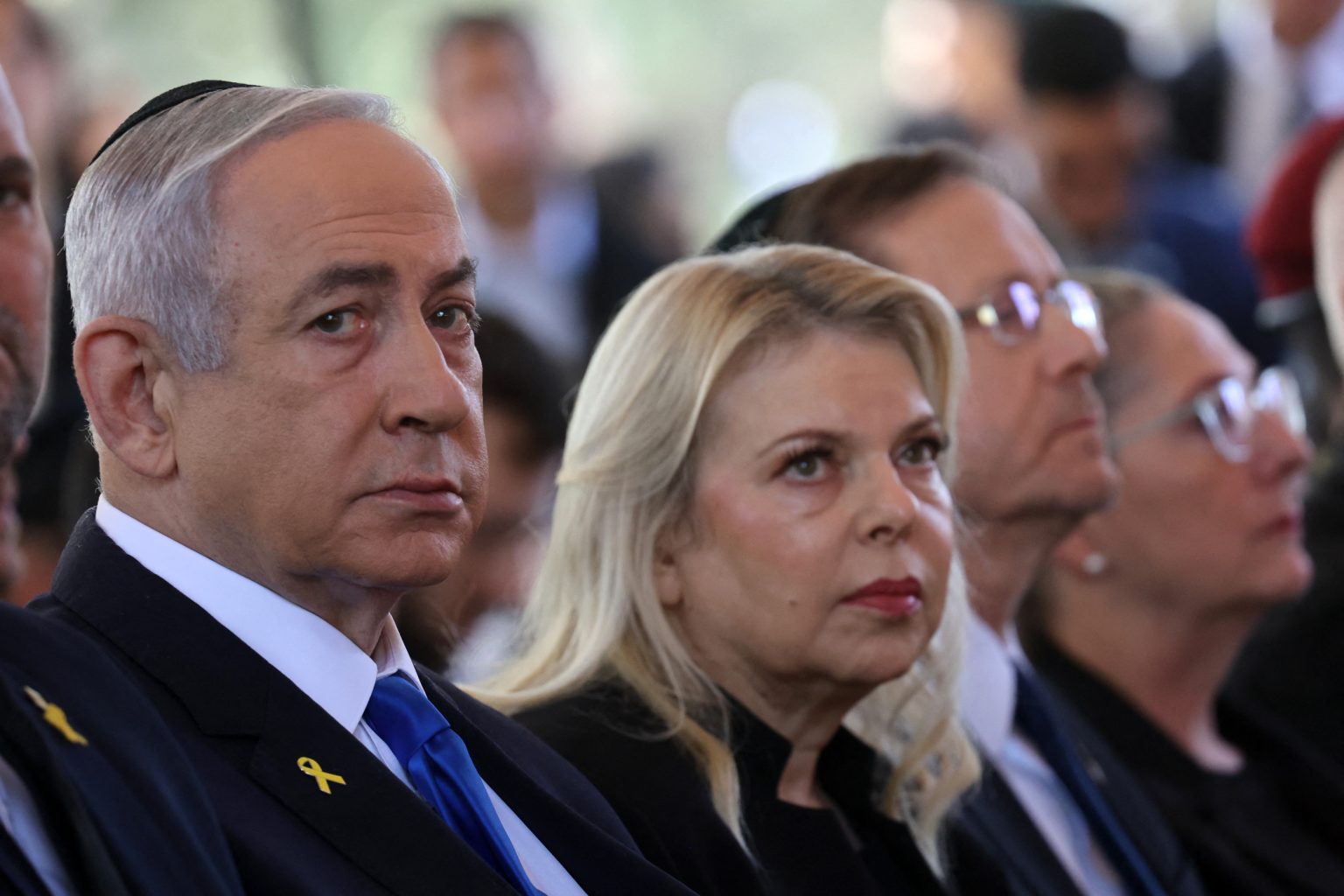The Israeli political landscape is embroiled in yet another controversy involving Prime Minister Benjamin Netanyahu and his family. Attorney General Gali Baharav-Miara has ordered an investigation into Sara Netanyahu, the prime minister’s wife, regarding allegations of harassment targeting political opponents and a key witness in her husband’s ongoing corruption trial. This investigation stems from a recent exposé by Israel’s Channel 12 Uvda program, which unearthed a trove of WhatsApp messages purportedly sent by Sara Netanyahu. These messages allegedly reveal her directing a former aide to orchestrate protests against political adversaries and to intimidate Hadas Klein, a crucial witness testifying against the prime minister. The investigation adds another layer of complexity to the already tumultuous legal battles faced by the Netanyahu family. The prime minister himself is currently on trial for charges of fraud, breach of trust, and accepting bribes, charges he vehemently denies, labeling them a “witch hunt.” Sara Netanyahu, too, has faced prior accusations of abusive behavior towards staff and misuse of public funds for personal luxury.
The Justice Ministry’s announcement of the investigation refrained from explicitly naming Sara Netanyahu, maintaining a degree of official ambiguity. However, the timing and context leave little doubt about the target of the probe. The ministry declined to offer further comments, leaving the public to speculate about the extent and implications of the investigation. This probe throws into sharp focus the allegations raised by the Uvda report. The report presented WhatsApp messages suggesting Sara Netanyahu’s involvement in organizing protests against political opponents and pressuring her husband’s former aide, Hanni Bleiweiss, to incite attacks against Hadas Klein, the witness in the corruption trial. Klein, an aide to billionaire film producer Arnon Milchan, testified about her role in delivering lavish gifts to the prime minister, a central element in the corruption case. The report also alleges that Sara Netanyahu advocated for a harsher police response against anti-government protesters, urging the use of violence. Bleiweiss, who reportedly suffered mistreatment at the hands of Sara Netanyahu, shared the incriminating messages with a reporter shortly before her death from cancer.
Benjamin Netanyahu has responded to the Uvda report with fervent denial, dismissing it as “lies” and “false propaganda.” He accused his political opponents and the media of targeting his wife, attempting to portray her as a victim of a smear campaign. In contrast to the allegations, Netanyahu highlighted what he described as his wife’s charitable work and kind nature, seeking to counter the negative portrayal presented in the report. The prime minister’s response underscores the deep political divisions within Israel and the highly charged atmosphere surrounding the ongoing legal proceedings.
The investigation into Sara Netanyahu has further inflamed tensions within the government. National Security Minister Itamar Ben-Gvir, a vocal critic of Attorney General Baharav-Miara, seized upon the announcement to renew his calls for her dismissal. He argued that her decision to investigate the prime minister’s wife demonstrates a political bias, making her unfit for office. Justice Minister Yariv Levin echoed Ben-Gvir’s sentiments, accusing the attorney general of prioritizing “television gossip” and engaging in “selective enforcement.” These criticisms highlight the escalating conflict between the government and the judiciary, a recurring theme in Israeli politics, now further exacerbated by the allegations against the Netanyahu family.
The latest developments add another layer of complexity to the Netanyahus’ ongoing legal challenges. The prime minister is already grappling with his own corruption trial, and now his wife faces a potential investigation into allegations of harassment and intimidation. This confluence of legal battles unfolds against the backdrop of escalating international scrutiny. The International Criminal Court (ICC) is pursuing an arrest warrant for Netanyahu on charges of war crimes and crimes against humanity related to the war in Gaza. Netanyahu vehemently denies these charges, calling them “absurd and false.” The Netanyahus must now navigate these multiple legal fronts while simultaneously managing the political fallout and the ongoing criticism of the prime minister’s handling of the Israeli-Hamas war. These events place immense pressure on the Netanyahu government and further polarize Israeli society.
The convergence of these legal and political battles creates a highly volatile situation in Israel. The investigation into Sara Netanyahu adds fuel to the already heated political climate, further dividing public opinion and intensifying the scrutiny on the prime minister and his family. The outcome of this investigation and the ongoing corruption trial will undoubtedly have significant repercussions for the future of Israeli politics and the stability of the Netanyahu government. The international community is also closely watching these developments, particularly in light of the ICC’s pursuit of an arrest warrant for the prime minister. The coming months are likely to be a period of intense political maneuvering and legal battles, with the fate of the Netanyahu government hanging in the balance.

